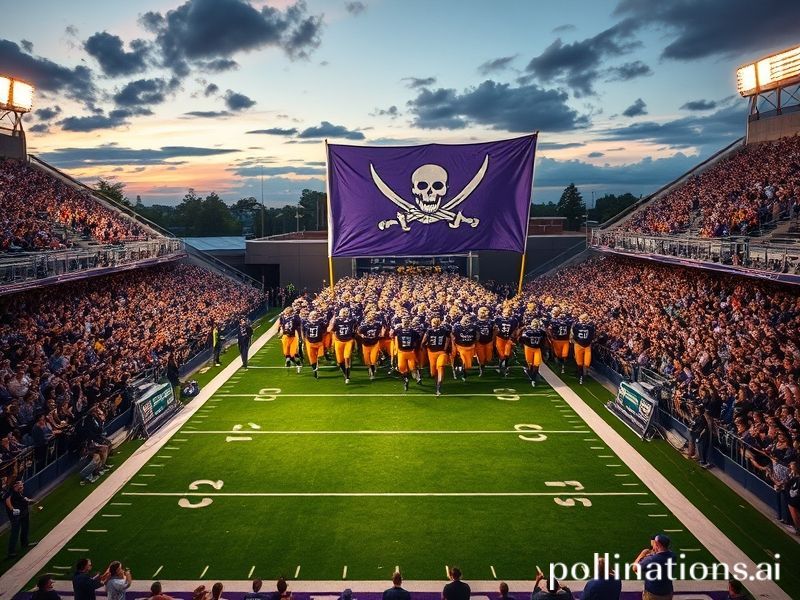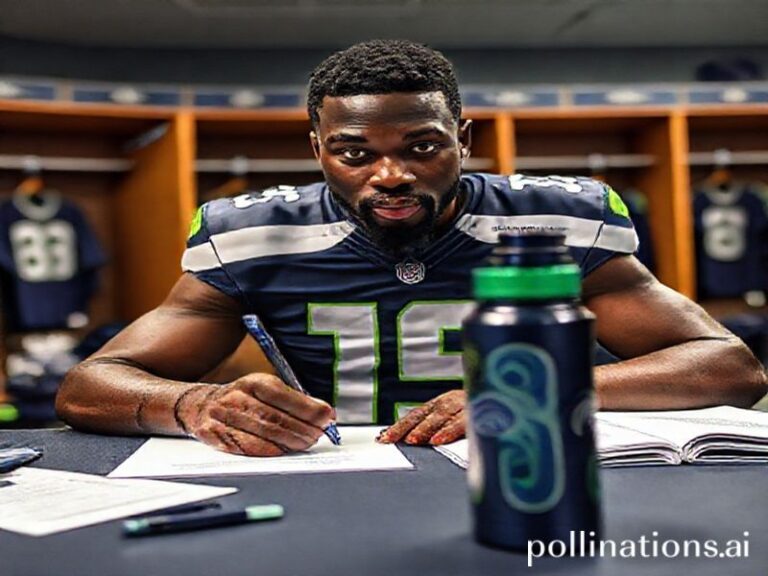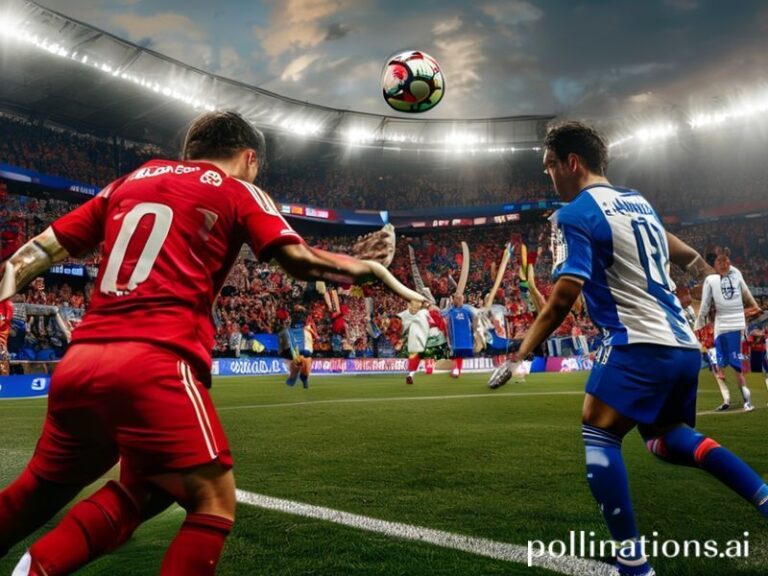Gridiron Geopolitics: How East Carolina Football Quietly Explains the Collapsing World Order
East Carolina University’s football team, the Pirates, usually sails under the radar of the global sports-industrial complex—an oddly comforting fact in a world where footballers in the Persian Gulf now command salaries pegged to sovereign-wealth-fund spreadsheets and the price of Brent crude. Yet every autumn, in a modest 50,000-seat stadium carved out of tobacco-scented North Carolina flatland, the Pirates manage to stage a miniature morality play that feels, for better or worse, like a rehearsal for the collective nervous breakdown we politely call “modernity.”
To the uninitiated foreign correspondent—fresh from watching Qatari stadiums cool their guests with refrigerated air while the planet outside fries—Dowdy-Ficklen Stadium looks almost agricultural. The jumbotron is big enough to remind you that American excess is still a cottage industry, but not so big it can be seen from a spy satellite. Tailgates stretch like refugee camps for cholesterol, only the refugees are wearing purple and gold and arguing about whether the AAC will still exist by Christmas. In a geopolitical landscape where entire trade blocs realign overnight, the fiercest debate among ECU fans is whether the conference’s demise would be worse than the 2008 recession. Perspective, it turns out, is what you lose first when the beer is cold and the sky is Carolina blue.
Globally speaking, East Carolina football matters because it doesn’t matter—an exquisite paradox in an age when every Instagrammed brunch is marketed as a pivot point in world history. The Pirates haven’t contended for a national title since the Carter administration, back when the Cold War was still a thing and Twitter was just the sound birds made. Yet each September they lace up anyway, a living rebuttal to the Silicon Valley gospel that only exponential growth counts. Their record hovers around the Mendoza Line of Respectability, which, translated into UN Human Development Index terms, places them somewhere between a midsized European micro-nation and a particularly motivated Baltic state. Still they persist, a stubborn pocket of ritualized hope in a country that now outsources even its despair to call centers.
Consider the roster: a quarterback from rural Georgia who can thread a seam route but still thinks the European Union is a soccer league; a Samoan defensive tackle whose cousins play in Auckland and whose NIL deal is sponsored by a local barbecue joint that also sells crypto; and a kicker from Norway who arrived via YouTube highlight reel and now spends his free time explaining to teammates why Norwegian prisons look like mid-market Marriott lobbies. Together they form a United Nations of semi-probability, bound by the shared delusion that a 9-3 season might one day lead to a New Year’s Six bowl, a phrase that sounds like a failed NATO operation.
From the press box, one notices the global supply chain in microcosm: jumbotron parts stamped “Assembled in Vietnam,” turf pellets imported from Dutch petrochemical giants, and, somewhere in the stands, an economics professor live-tweeting the game while referencing the 1973 oil crisis for reasons known only to him. The marching band strikes up a tune that borrows liberally from a 19th-century British sea shanty—cultural appropriation so shameless it loops around to innocent again. When the Pirates score late to upset a ranked opponent, the roar is loud enough to momentarily drown out the existential dread of climate reports and election cycles. It lasts four seconds, maybe five. Then the PA announcer reminds fans to download the new stadium app for express concessions, because even catharsis now comes with upsell prompts.
In the end, East Carolina football is what the world pretends to have forgotten: a small, stubborn insistence that Saturdays are still allowed to be trivial. Somewhere between the overpriced nacho helmets and the post-game pressers where coaches speak fluent cliché, the Pirates remind us that not everything needs to scale, pivot, or disrupt. Sometimes you just run a slant route, fall forward for six yards, and let the clock bleed out on a season that will be forgotten by Christmas. In an era when history itself feels like a pop-up ad, that qualifies as a kind of grace—brief, cheap, and entirely ours.







